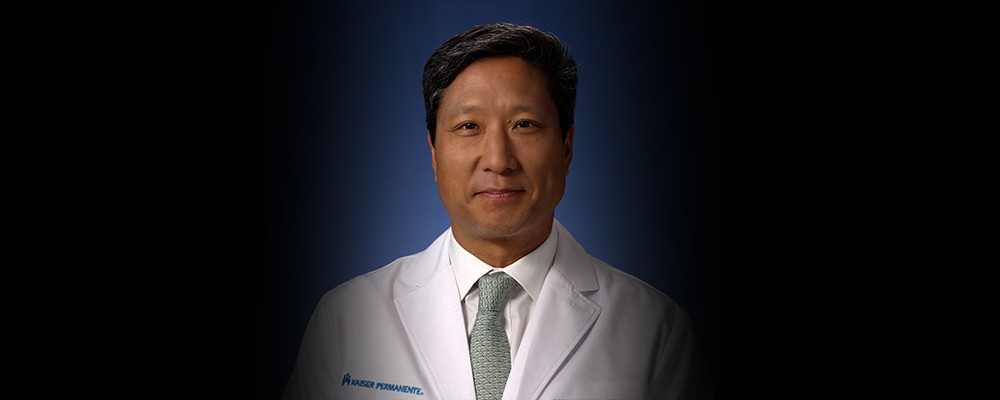Robert W. Chang, MD
“This study reflects the commitment of Kaiser Permanente and TPMG to bridge the gap between cutting-edge research and clinical care. There is vast opportunity to answer critical questions that will impact patients on a daily basis.”
“The optimal management of patients with carotid disease has been quite controversial,” says Robert W. Chang, MD, assistant chair of Vascular Surgery for KP Northern California. “The Society of Vascular Surgery identified it as the number one research priority in our specialty.”
Carotid disease is narrowing (atherosclerosis) of neck arteries, which has been labeled a primary risk factor for stroke.
The decision to intervene surgically has been based on three clinical trials conducted in the 1980s and 1990s, Dr. Chang explains. But nonsurgical management of carotid disease improved dramatically in intervening decades, calling into question whether surgery was necessary.
Many vascular surgeons believed that the actual stroke risk is now much lower than it was when the trials were conducted, Dr. Chang says. “A lot of these patients are elderly with multiple medical problems, and perhaps they may not benefit from intervention. The modern question is, do these trials still apply to our patients?”
Using Kaiser Permanente’s extensive electronic medical records, Dr. Chang identified almost 100,000 patients with carotid disease in KP Northern California and categorized their disease level and outcomes for an average of 4 years. Published in JAMA, his study found that stroke risk in patients with severe, asymptomatic carotid stenosis was only about 1%.
“Dr. Chang’s research shows that there are benefits to medical management of hypertension and cholesterol, and getting people to stop smoking and prevent heart attacks and strokes,” says John Skerry, MD, physician-in-chief at KP South San Francisco. “You can avoid the need for intervening, because while our intentions are good, intervention carries its own risks.”
Dr. Chang’s research was supported by a TPMG Physician Researcher Program grant at the KP Northern California Division of Research.
“He is interested in understanding which patients really benefit from surgery, so that we do not hurt but rather help them,” says Betty J. Suh-Burgmann, MD, chair of the Central Research Committee. “Dr. Chang showed that we have to be much more selective about which patients we offer surgery to for severe carotid stenosis.”
